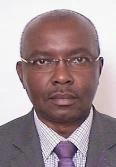International Women’s Day on March 8 provides us the opportunity to celebrate the achievements of women all over the world and reflect on both the progress we have made on gender equality and the challenges we still need to address.
Since my arrival in Kabul last July, I have had the opportunity to meet many Afghan women from all sectors of life – from members of parliament and Ministers to farmers and doctors.
Among all those I have met, I have been most impressed by the story about Fariba Sharif Ahmadi – a provincial manager for the Citizens’ Charter Community Development Councils (CDCs). Fariba provides guidance and training to residents of Kart-e-Asadi and is a shining example of how much there is to be gained by promoting gender equality.
Unfortunately, stories like Fariba’s tend to be the exception and not the rule. Despite accounting for nearly half of Afghanistan’s population, women remain severely underrepresented in all walks of life – economically, socially, and politically. Decades of conflict, coupled with traditional cultural and social norms, have pushed women into disadvantaged positions – making gender equality and empowerment an even greater challenge.
Despite accounting for nearly half of Afghanistan’s population, women remain severely underrepresented in all walks of life – economically, socially, and politically.
At the World Bank Group, we believe that no country, community, or economy can achieve its potential or meet the challenges of the 21st century without the full and equal participation of every woman, man, girl, or boy. Gender equality is central to the World Bank Group’s own goals of ending extreme poverty and boosting shared prosperity in a sustainable manner.
I have seen first-hand the positive outcomes of policies and actions the country has taken to boost equality and empower women. Equal rights for women are now guaranteed in the constitution. More and more women are joining the workforce or enrolling in higher education and participating in local and national governance by women is on the rise.
I am particularly proud of the work we are doing to further empower women and provide opportunities to prosper. Projects like the Women Economic Empowerment – Rural Development Program (WEE-RDP), the National Horticultural and Livestock Project (NHLP), and the EQRA (“read”) are helping women start businesses, learn new skills, and increase equitable access to primary and secondary education.
As the country progresses, so too do our projects. We learned from earlier engagements that rural women represent a target group interested in business development but often ignored when it comes to mobilizing resources. In response, the WEE–RDP reaches out to the most vulnerable women in rural areas to give them opportunities to start a business and access financial information. The program will cover 76 districts throughout Afghanistan, where potential rural businesswomen are expected to create income-generating opportunities in villages that will benefit more than half a million rural people.
The NHLP has empowered thousands of unskilled, rural women through its backyard gardening scheme, which provides resources and training to these women - allowing them to be independent producers, earn a sustainable livelihood, and have a greater say at home and in their communities.
Recognizing that education lies at the heart of empowerment, we are working with other international donors to increase access for girls to primary and secondary education in selected lagging provinces through the EQRA project. The Higher Education Development Project is also addressing underlying factors that deter girls from applying to public universities by providing scholarships, building adequate housing and toilet facilities, and offering safe transportation.
Our commitment to equality and women’s empowerment is not merely confined to individual projects. We strive to ensure there is a gender focus that aligns with the Government of Afghanistan’s national priority programs in all of our actions and initiatives.
Our commitment to equality and women’s empowerment is not merely confined to individual projects.
As a result, we are taking small but steady steps toward women’s equality and empowerment in Afghanistan.
The empowerment of women in all aspects of Afghan life is good for everyone – leading to a just and equitable society that will significantly contribute to sustainable growth and development in Afghanistan. Building on these past successes will give us even more cause to celebrate International Women’s Day for years to come.


Join the Conversation